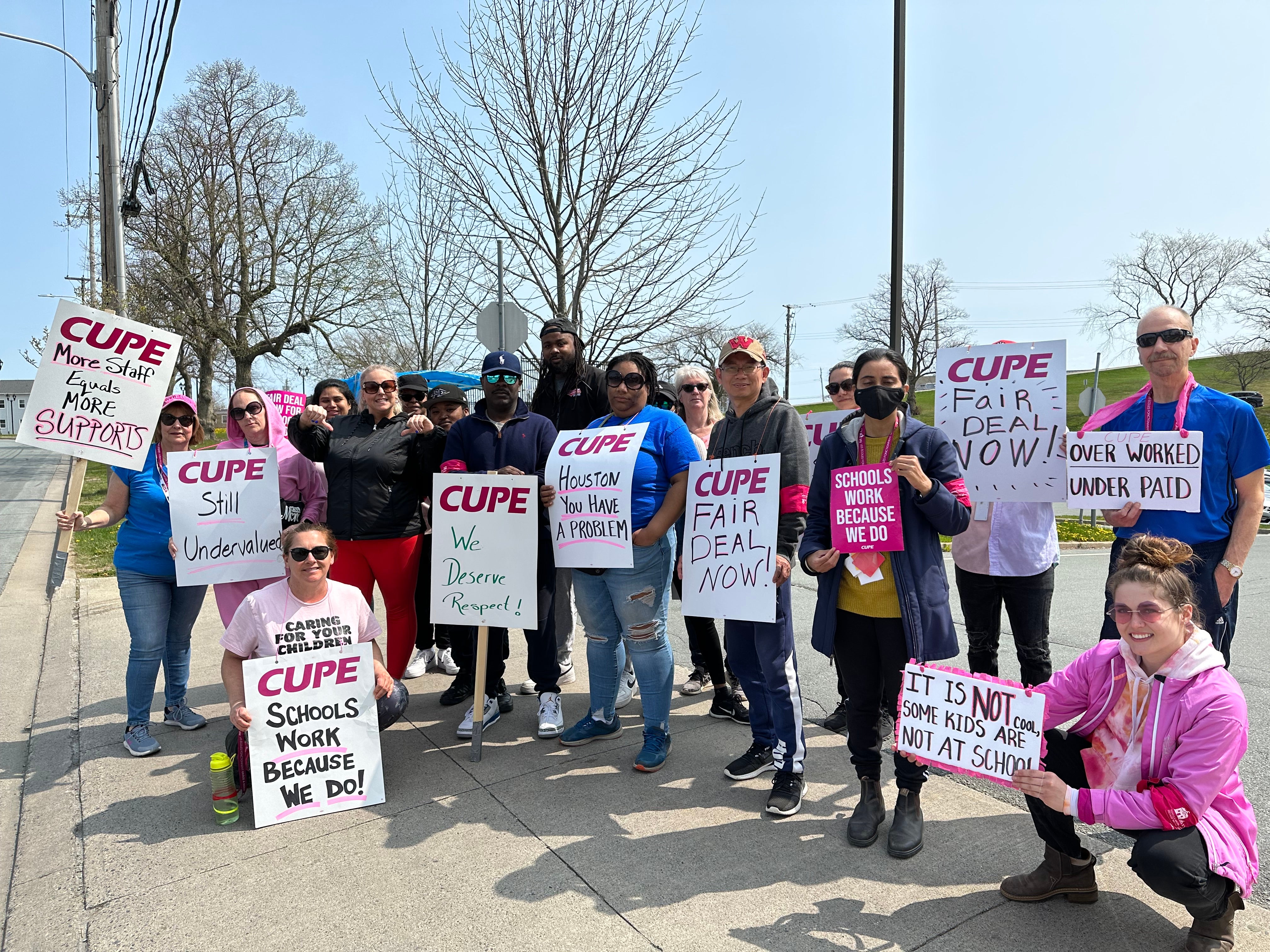***Op-ed originally published in The Chronicle Herald on Friday, November 15, 2024***
Once upon a time, in the not-so-distant past for Nova Scotia, the best education a person could hope for was learning to read and learning basic arithmetic in a one-room schoolhouse, with kids of all ages and learning levels and one (probably overworked) teacher.
But that’s not the reality we live in anymore. As the physical space of schools have expanded, so has the team that ensures a healthy and successful learning environment. Nowadays, pretty much anyone you know who completed their primary and secondary education in Nova Scotia’s public schools would have done so in a building with hundreds (or thousands) of students, and hundreds of workers who educate, support and care for our kids.
Picture that one-room schoolhouse in your mind. Now imagine it expanding. With every new classroom, with library, computer lab, and specialized space, come more staff. As our communities grow, so do the needs of our communities. In 2024, school can mean an entire ecosystem that includes bringing kids to school and safely home every day, providing their breakfast and ensuring a safe and hygienic learning environment. It means childcare, it means supporting healthy personal development, and it means inspiring an entire generation.
Personally, I am a Child and Youth Care Practitioner. I have been for six years. Like anyone else, there are a few reasons I decided to go into this line of work. But mainly, I love working with kids, and I believe in the impact that this work can have in supporting and improving the physical, emotional, intellectual and social development of vulnerable children, youth and families. I believe that learning is more than just a classroom, desks, and a teacher.
I also believe that any ecosystem is as healthy as its’ members. School support staff are part of education ecosystems, and the treatment of the workers in these roles has a direct and tangible impact of the quality of our public education.
When kids witness violent incidents (like school support staff being punched, kicked, or held down and repeatedly bitten) it has an impact on them. When kids experience a high turnover of burnt-out staff, it has an impact on them. When bus routes are cancelled, it has an impact on them—and their parents. I know what you’re thinking: Job action impacts kids and parents also.
But I ask you, which would you choose: Supporting workers now, to ensure a safer, healthier, and more effective learning environment for kids in the future or opposing job action to keep kids in schools, knowing the standard of public education declines every year because the Department of Education chooses to ignore the pleas of workers who want to ensure our education ecosystems are thriving and that our kids are safe.
The government continue to sideline the workers that experience the ongoing crisis of violence in our schools the most. Though we have been pushing for action on that front for years, they will not include us the conversation when they design plans and policies to address the crisis. Maybe that’s why their moves seem so short-sighted. In July, it was three new schools in the HRM. Except by the time they are built, needs will have outpaced those new schools, and we will already need more. The 47 new staff positions promised a few weeks ago would not make a meaningful difference spread across the 142 schools in the HRCE, never mind the whole province.
But if your choice is still the latter option, I don’t blame you. I am a parent also, and I know how difficult it can be to find transportation or childcare alternatives when schools close for weather, professional development, or job action by educators.
In the Halifax Regional Municipality especially, it probably seems like just yesterday that CUPE 5047, representing school support staff at the Halifax Regional Centre for Education, were on strike. Even for us CUPE members, the possibility of job action again means a lot of planning and preparation to ensure we can continue to take care of our families and put food on the table. We have to make a difficult short-term decision in the name of a longer-term vision.
Over 5,000 school support staff across Nova Scotia believe in that vision and have made that hard decision. All we need now is your support. For the sake of our kids, our public education system, and our future, please stand with us.
Shelley McNeil
CUPE 5047 President

